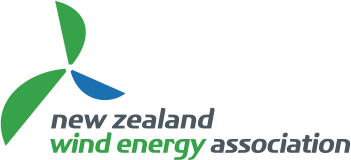Ensuring the health, safety and wellness of its people is the most important priority for any business. Given the risk associated with the electricity industry and wind farms it is encouraging that practices and procedures for managing H, S & W on windfarms are now well developed globally.
NZWEA members recognise the open sharing of information improves health and safety practices. We understand that the actions of individual members impact on the wind industry and share a common goal to ensure our people get to go home safely.
In 2012, NZWEA established a Health and Safety initiative. Representatives from companies involved in the wind industry meet quarterly to exchange knowledge and ideas, and help build a safer industry.
At the 2013 NZ Wind Energy Conference, NZWEA launched the first set of Health and Safety Guidelines for the Wind Industry. These are based on the Irish Wind Energy Health and Safety Guidelines, which in turn are based on the UK guidelines. The guidelines were revised following the introduction of the Health and Safety at Work Act 2015.
- Health and Safety Guidelines for the Wind Industry (0.7MB pdf).
The Guidelines are high level and focus on the kinds of questions that senior management and company directors need to ask together with the kinds of answers that should be expected. Over time more detailed guidelines will be developed covering specific aspects of windfarm development and management. NZWEA's aim is that these will provide a consistent set of approaches across the industry. Consistent approaches will reduce costs for the industry, particularly for companies that work across multiple sites, and will improve safety in an industry that both in New Zealand and globally has a very high safety record.
Much of the information and approaches used in this programme is sourced from the Global Wind Organisation. The GWO comprises H&S representatives from some of the world’s largest wind organisations. The GWO aims to provide a common pool of information that helps to continuously improve health and safety in the wind industry. The GWO’s view is that “my accident is your accident” and there is no competitive advantage in health and safety.
Working drafts of guidelines, minutes of meetings etc are available to members.
